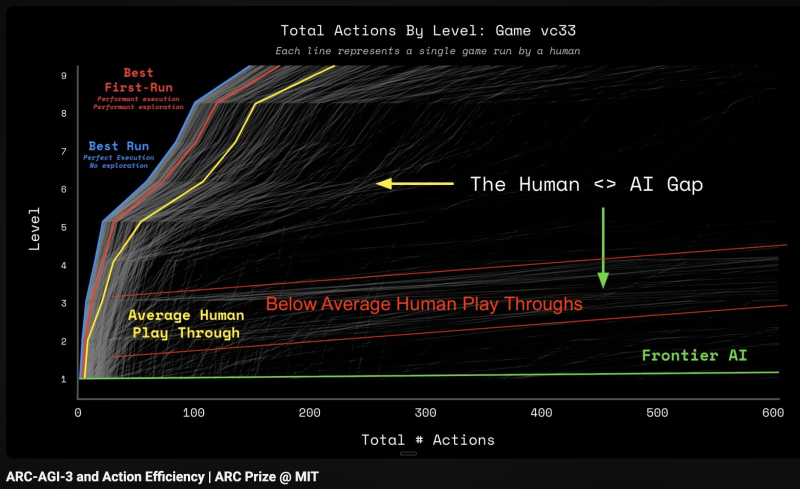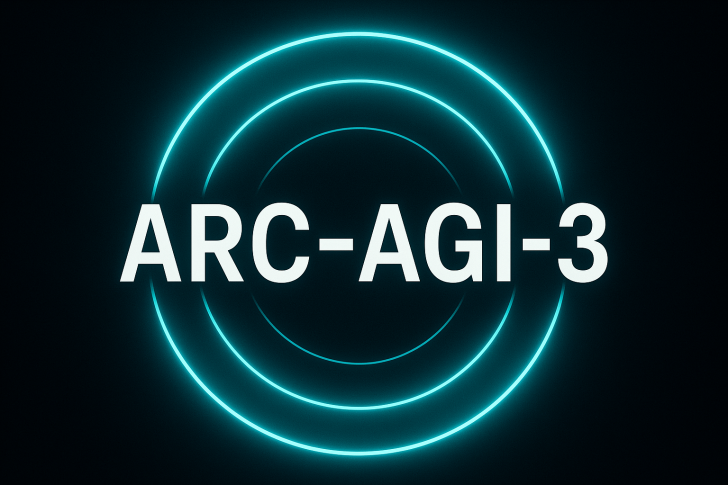● There's been a lot of talk about AI catching up to humans, but new data from the ARC Prize at MIT gives us some hard numbers to work with. Twitter user Teortaxes recently broke down the ARC-AGI-3 benchmark results, and they're pretty revealing. For the first time, we've got a detailed human baseline that maps out how people actually perform across multiple attempts, making it easier to see where AI stands in comparison.

● Here's what the data shows: average humans (marked in yellow on the chart) and even below-average attempts (in red) consistently beat frontier AI systems (green) when it comes to action efficiency and adaptability. It's not just about getting the right answer—humans are better at exploring different approaches and flexibly adjusting their strategies. As Teortaxes put it, "the ARC-AGI-3 data is really interesting because we finally have a dense human baseline — and its average is far above frontier AI."
● So what's going on here? AI has gotten incredibly good at pattern recognition and precision, but when thrown into novel situations that require real adaptability, humans still come out on top. We're just better at figuring things out on the fly.
● But here's where it gets interesting. Teortaxes pointed out something important: "the lower red zone — humans inefficiently bumbling upwards — is what you get automatically with continuous learning. That, we may have soon." In other words, the messy trial-and-error approach that even less-skilled humans use naturally? AI with continuous learning capabilities could start mimicking that pretty soon, no reprogramming needed.
● For anyone watching AI development—whether you're an investor, researcher, or policymaker—this matters. Benchmarks like ARC-AGI-3 aren't just academic exercises. They help AI labs figure out how much bang they're getting for their compute buck and give us tangible ways to measure progress toward AGI. There's also a growing argument that focusing on continuous learning, rather than just throwing more processing power at the problem, could be a smarter and more sustainable path forward.
 Usman Salis
Usman Salis

 Usman Salis
Usman Salis


